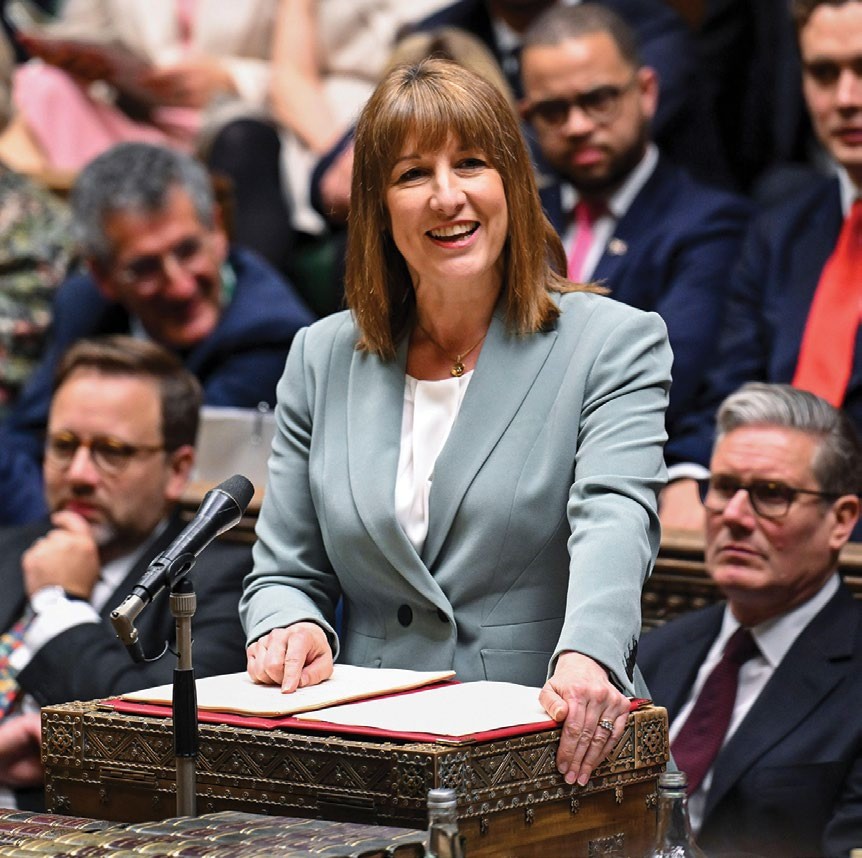Help Britain's feckless families – invest in Jamie Oliver
How can we save the feckless from themselves and protect the taxpayer from the financial demands of the welfare state? Jamie Oliver could be a good place to start.

Get the latest financial news, insights and expert analysis from our award-winning MoneyWeek team, to help you understand what really matters when it comes to your finances.
You are now subscribed
Your newsletter sign-up was successful
Want to add more newsletters?

Twice daily
MoneyWeek
Get the latest financial news, insights and expert analysis from our award-winning MoneyWeek team, to help you understand what really matters when it comes to your finances.

Four times a week
Look After My Bills
Sign up to our free money-saving newsletter, filled with the latest news and expert advice to help you find the best tips and deals for managing your bills. Start saving today!
There are four million families in the UK in which no one works. In the north east 24.3% of households are workless. This is shocking stuff. Partly because in most cases, worklessness equals a degree of poverty (UK benefits are relatively generous, but their claimants aren't exactly all planning holidays to the Maldives) and of course because poverty brings with it all sorts of consequent problems from bad health to a propensity to crime.
But it is also shocking because it is so expensive for working households: non-working families cost working families a large percentage of the welfare budget of £192bn (note that our defence budget is a mere £37bn) and many billions more in indirect costs. If they aren't working, our taxes are paying for what would have been their share of the upkeep of the roads and so on.
But while all the unemployed and their households cost us, some cost us an awful lot more than others. The papers are fond of pointing at the example of the thoroughly unpleasant-sounding Keith MacDonald, a 25-year-old unemployed man (on incapacity benefit for his "bad back") who has fathered eight children and has two more on the way.
MoneyWeek
Subscribe to MoneyWeek today and get your first six magazine issues absolutely FREE

Sign up to Money Morning
Don't miss the latest investment and personal finances news, market analysis, plus money-saving tips with our free twice-daily newsletter
Don't miss the latest investment and personal finances news, market analysis, plus money-saving tips with our free twice-daily newsletter
The total cost of his unemployed households to the state? Probably around £2m, says The Sunday Times. Or, given that the children are likely to have relatively chaotic childhoods, probably a lot more: according to the BMJ, disruptive children are far more likely to go on to commit crimes than others and end up incurring costs to public services of around ten times the average. How's that for a rubbish way to use taxpayers' money?
Politicians like to say that the only way to deal with such "feckless families" and the problems they cause is "early intervention". But saying isn't doing and, being prone to favouring the short term over the long term, they rarely back up their regular statements on this with the money needed to make it work. And they probably never will.
So what's to be done to save the feckless from themselves and to save the taxpayer from the seemingly endless financial demands of the welfare state? It might be the private sector.
Ministers and financiers are apparently looking into a scheme to allow investors to put money into early intervention parenting classes for teenage mothers and so on. If they then succeed in "breaking the cycle of low achievement among families for whom criminality, a life on benefits, and lack of education is the norm" says The Sunday Times, they'll make a return paid out by the government out of expected savings in benefits and crime costs. The idea from the point of view of the state is that over time we spend less on picking up the pieces of the broken society and more on fixing it at source.
Can it work? It is impossible to tell the idea of anything being managed by a combination of men from the big banks and the state gives me the shivers. But there are obvious places to start with this kind of thing. Right now there is a risk that Jamie Oliver's 'learn-to-cook' centre in Rotherham, The Ministry of Food, might be shut down thanks to budget constraints. But it does valuable work in teaching people how food works and that in turn could, if leveraged well, play a role in cutting down on the huge costs to us all of the ongoing obesity epidemic, of the problems that stem from the awful diets of many of our children, and so on.
Jamie reckons he needs £60m to open a Ministry of Food in every local authority area across the UK. If he can work out a deal whereby investors get a return for every person who avoids getting type 2 diabetes as a result of him doing so, I think we should give it to him.
Get the latest financial news, insights and expert analysis from our award-winning MoneyWeek team, to help you understand what really matters when it comes to your finances.

-
 13 ways to get a tax-free income every year
13 ways to get a tax-free income every yearMillions more people are paying income tax as a result of frozen thresholds. But there are still more than a dozen ways to generate an income legally without handing over any of it to HMRC.
-
 When is the Spring Statement and what's expected in it?
When is the Spring Statement and what's expected in it?The Spring Statement might have less of an impact than the Budget, but the annual fiscal event is still key to understanding what is happening in the UK economy and where it’s headed
-
 Beating inflation takes more luck than skill – but are we about to get lucky?
Beating inflation takes more luck than skill – but are we about to get lucky?Opinion The US Federal Reserve managed to beat inflation in the 1980s. But much of that was down to pure luck. Thankfully, says Merryn Somerset Webb, the Bank of England may be about to get lucky.
-
 Rishi Sunak can’t fix all our problems – so why try?
Rishi Sunak can’t fix all our problems – so why try?Opinion Rishi Sunak’s Spring Statement is an attempt to plaster over problems the chancellor can’t fix. So should he even bother trying, asks Merryn Somerset Webb?
-
 Young people are becoming a scarce resource – we should value them more highly
Young people are becoming a scarce resource – we should value them more highlyOpinion In the last two years adults have been bizarrely unkind to children and young people. That doesn’t bode well for the future, says Merryn Somerset Webb.
-
 Ask for a pay rise – everyone else is
Ask for a pay rise – everyone else isOpinion As inflation bites and the labour market remains tight, many of the nation's employees are asking for a pay rise. Merryn Somerset Webb explains why you should do that too.
-
 Why central banks should stick to controlling inflation
Why central banks should stick to controlling inflationOpinion The world’s central bankers are stepping out of their traditional roles and becoming much more political. That’s a mistake, says Merryn Somerset Webb.
-
 How St Ives became St Tropez as the recovery drives prices sky high
How St Ives became St Tropez as the recovery drives prices sky highOpinion Merryn Somerset Webb finds herself at the epicentre of Britain’s V-shaped recovery as pent-up demand flows straight into Cornwall’s restaurants and beaches.
-
 The real problem of Universal Basic Income (UBI)
The real problem of Universal Basic Income (UBI)Merryn's Blog April employment numbers showed 75 per cent fewer people in the US returned to employment compared to expectations. Merryn Somerset-Webb explains how excessive government support is causing a shortage of labour.
-
 Why an ageing population is not necessarily the disaster many people think it is
Why an ageing population is not necessarily the disaster many people think it isOpinion We’ve got used to the idea that an ageing population is a bad thing. But that’s not necessarily true, says Merryn Somerset Webb.